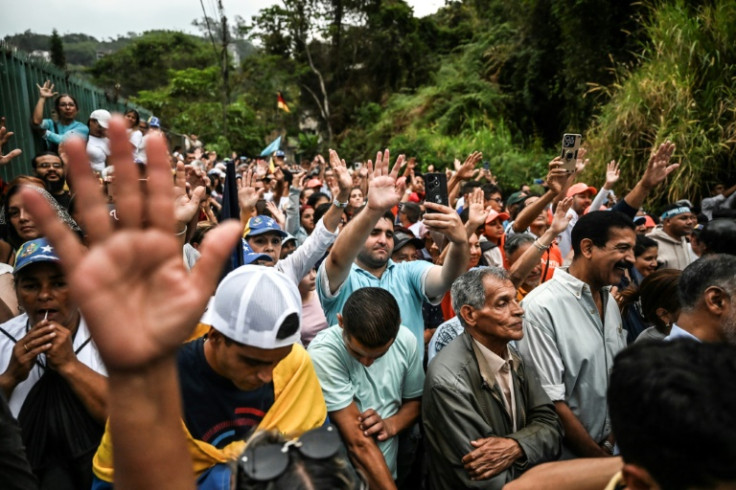
In Venezuela, not even love is immune to the uncertainties of daily life. Millions have left the country in the past decade, and with a presidential election approaching this month, even more people are considering emigration. This situation is causing chaos in Venezuela's economy, politics, and dating scene.
Young people are grappling with the decision of starting or ending relationships amid uncertainty. Questions about future plans, such as leaving the country, are becoming common in conversations among friends and online.
Victoria Estevez, a 20-year-old young woman, spent two months getting to know someone online, discussing their families and friends, before meeting in person in December. By February, they were in a relationship. However, soon the reality hit hard when her boyfriend revealed his plans to leave the country, leaving her heartbroken.
"Remember I had told you that I have a brother in the Dominican Republic? Well, I am going to leave the country, too," her boyfriend texted her on WhatsApp, AP News reported. This was the second guy in a row to surprise her with plans to emigrate.
"How had he not told me that there was a possibility he would leave?" Estevez wondered.
Venezuela, once a place that welcomed Europeans fleeing war and Colombians escaping conflict, has now witnessed an exodus of over 7.7 million people. The government faces a big challenge in the upcoming July 28 election, as a poll by a Venezuelan research firm, Delphos, earlier this year showed about a quarter of people are thinking about leaving the country.
Of those, around 47% said they would stay if the opposition won, and about the same number said they would stay if the economy improved.
Accountant Pedro Requena had seen many friends leave, but it felt different when the woman he had dated for three months in 2021 told him she was moving to Turkey with her mom.
Requena, 26, was falling for her, but he was focused on finishing his university degree and didn't think about leaving Venezuela. With no guarantee she'd come back or that he could visit her, they decided to try a long-distance relationship. They woke up early or stayed up late for video calls, despite the seven-hour time difference. They watched movies and TV shows together online. They texted constantly. "Venezuelans adapt to anything. The crisis changes you," he said.
Dr. Amir Levine, a psychiatrist and research professor at Columbia University, said, "With the dating scenarios in Venezuela now, there's like a certain built-in insecurity, or lack of safety, in the system because people don't know what's going to happen."
"The political instability actually introduces the instability into the relationship or into dating in general," Levine added.
© 2024 Latin Times. All rights reserved. Do not reproduce without permission.







